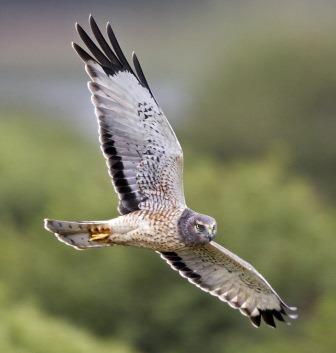CONCORD - The New Hampshire Fish and Game Department wants you to know about the Recovering America's Wildlife Act (RAWA), a bill introduced in Congress last week that's considered the most important conservation legislation in a generation.
An unprecedented alliance of government, business, education, and conservation leaders have united to provide a solution for one of America's greatest threats - the endangerment of our fish and wildlife. Scientists estimate that one-third of wildlife species in the United States are at risk of becoming threatened or endangered without much-needed funding for their conservation.
The Alliance for America's Fish & Wildlife's purpose is to create a 21st-century funding model for critically needed conservation of our nation's most precious natural resources, our fish and wildlife. This effort has expanded out of the strong partnership created by the Blue Ribbon Panel on Sustaining America's Diverse Fish & Wildlife Resources, consisting of members representing the outdoor recreation, retail, and manufacturing sector, the energy and automotive industries, private landowners, educational institutions, conservation organizations, sportsmen's groups, and state and federal fish and wildlife agencies.
The solution to this wildlife challenge is passage of the bipartisan Recovering America's Wildlife Act,[https://www.nwf.org/en/Our-Work/Wildlife-Conservation/Policy/Recovering-Americas-Wildlife-Act] introduced as H.R. 4647 by Representatives Jeff Fortenberry (R-NE) and Debbie Dingell (D-MI). The bill will redirect $1.3 billion in existing royalties annually from the development of energy and mineral resources on federal lands and waters to conserve the full array of fish and wildlife. This solution will not require taxpayers or businesses to pay more, but instead allows all Americans to become investors in fish and wildlife conservation.
"All residents of New Hampshire have the responsibility to ensure diverse fish and wildlife resources are managed for future generations," said New Hampshire Fish and Game Department Executive Director Glenn Normandeau. "Our fish and wildlife are among our state's most valuable resources. The maintenance of diverse and healthy wildlife populations and their habitats through science-based management, along with educating the public about those resources, is a huge part of the Fish and Game mandate, and this funding would help enormously with this mission."
"This bill would provide critical funding for New Hampshire's Wildlife Action Plan, which sets priorities for restoring and managing our wildlife, including threatened and endangered species," said Michael Marchand, who supervises NH Fish and Game's Nongame and Endangered Wildlife Program.
New Hampshire's Wildlife Action Plan identifies over 900 important actions for the wildlife and wildlife habitats of New Hampshire, only a portion of which have adequate existing funding to implement. For example, undersized culverts under roadways can block passage of aquatic wildlife such as fish, reptiles, and freshwater mussels, but can also result in flooding and damage to human infrastructure. Working in partnership with other state and federal agencies, municipalities, and non-profit organizations, we can reduce the impact of this threat.
Of the 500-plus vertebrate species and thousands of invertebrates that call New Hampshire home, 169 were identified as species of greatest conservation need in the Wildlife Action Plan, and 50 are listed as threatened or endangered in New Hampshire. Additional critical research and targeted conservation efforts are needed for many of these species. Ongoing efforts with New England cottontails and Blanding's turtles could serve as a model for other species conservation efforts.
"This funding would facilitate additional future wildlife success stories, such as those we currently celebrate, like bald eagles coming back from the brink of extinction and restoring the wild turkey population in the state," said Marchand. "Proactive conservation is good for wildlife, good for taxpayers, good for business, and good for our communities. The Recovering America's Wildlife Act would provide the needed resources for proactive conservation nationwide."
- New Hampshire Fish & Game














